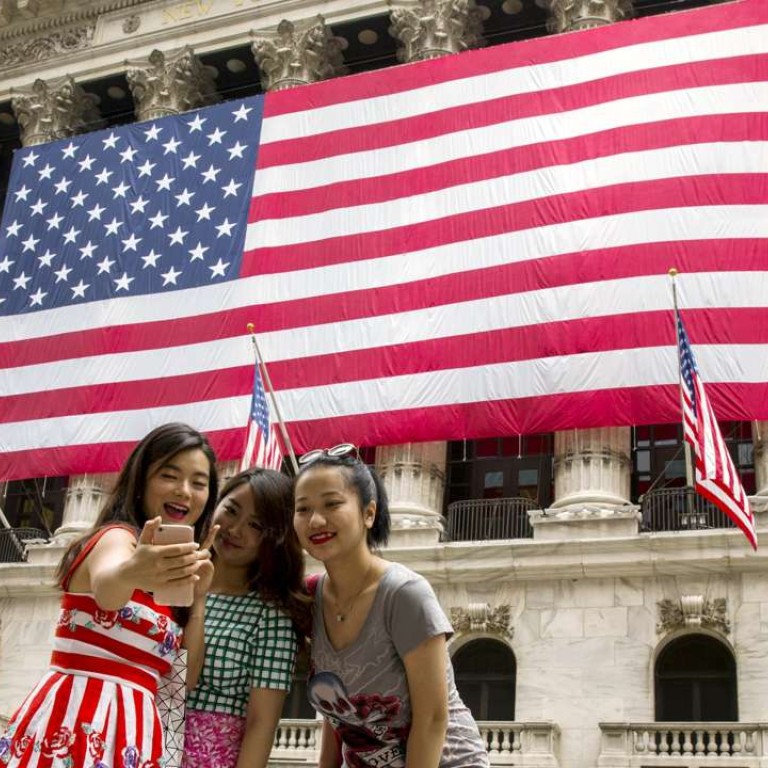
Young, wealthy Chinese choose entertainment, travel and health ahead of shopping
HSBC study shows 18 to 34-year-olds love imported goods, especially, and turn to friends for advice on everything from investment to infant formula
Young, wealthy Chinese are turning their backs on traditional shopping in favour of spending their hard-earned cash on entertainment, travel, e-commerce and healthy living, and 12 stocks have been highlighted as standing to benefit from the changing habits, according to a new lifestyle survey from HSBC.
As corporations in many sectors looks to a rise in Chinese consumer spending as the next driver for growth, the next generation of Chinese – wealthier, and at a younger age than their parents – are being tipped as the most-crucial group, said Erwan Rambourg, HSBC’s global co-head of consumer and retail.
The bank surveyed more than 2,000, 18 to 34-year-olds in major cities from August 10 to August 15, all with household incomes above 120,000 yuan a year.
“Most notable were the reality of travel (even domestic), the very high regard consumers have for imported goods, the influence of friends in many decisions and the soaring relevance of e-commerce platforms,” said Rambourg.
He acknowledged that the 2,000 snapshot may not be enough to form any meaningful opinion on a stock. However, the survey results have “reinforced” the bank’s decision to put “Buy” recommendations on a dozen stocks:
● Chinese e-commerce giant Alibaba
● Internet search engine Baidu
● South Korean cosmetic company AmorePacific, which owns brands like Sulwhasoo and Laneige
● Travel agency China Youth Travel Service (CYTS)
● French food company Danone
● South Korean botulinum toxin maker Hugel
● Spanish apparel retailer Inditex, which operates fashion brands including Zara
● US luggage manufacturer Samsonite
● South Korean smartphone maker Samsung Electronics
● Chinese budget airline company Spring Airlines
● Wanda Cinema, China’s largest cinema operator owned by tycoon Wang Jianlin
● Chinese high-end liquor maker Kweichow Moutai
By sector, “the under-penetrated nature of Chinese travel” is an important factor behind the buy ratings on CYTS, Spring Airlines and Samsonite.
South Korea is a key destination for Chinese travellers, so beauty company AmorePacific and cosmetic surgery company Hugel should benefit from the trend too.
“The enthusiasm and willingness to spend more online is a positive for Alibaba, where people expect to spend even more in the next few years”, said Rambourg.

In the food and home personal care sectors, most young Chinese still perceive western brands as being superior, boding well for dairy and food giant Danone.
The continued fast-fashion frenzy is also likely to benefit Spanish clothes brand Inditex, Rambourg said.
Arguably the most surprising finding, however, was that 55 per cent of respondents drink Baijiu, the fiery Chinese spirit, hardly the most-healthy drink on the market. The most popular brand among respondents is Wuliangye, due to its wide product offering, followed by the market-leading Moutai, despite its limited product offering.
HSBC analysts explained they recommended Moutai, as it is seen as a high-quality company for long-term holding – another case of quality appealing to the affluent younger Chinese, regardless of price.
He and other HSBC analysts also list some “fun facts” about the younger generation of Chinese consumers, who “in their minds, to get rich is glorious,” Rambourg added.
Ninety six per cent of respondents saw a stable or increasing annual income this year compared with 12 months ago. The wealthier individuals also have what he called a “chasing momentum”, tending to be more adventurous in share trading short term, with 35 per cent of respondents with annual income over 200,000 yuan choosing to buy what goes up, and sell within a few days.
As opposed to the older generation, friends are key influence for young people when making investment decisions, the HSBC analyst said.
Most notable were the reality of travel (even domestic), the very high regard consumers have for imported goods, the influence of friends in many decisions and the soaring relevance of e-commerce platforms
Three quarters of respondents turn to friends for investment advice, while more than half rely on friends for fashion trends. That trust even extends to buying recommendations on infant formula milk powder.
In terms of brands, young Chinese prefer western brands when it comes to food and personal care, with 94 per cent of respondents considering foreign products are “significantly better, slightly better or of similar quality”, the study showed.
They are also turning to a more diary-rich diet, with the fastest growing food and beverage categories milk, yoghurt, bottled water and fresh food. The top factor that influences the purchase of food brands is how “healthy” they are, the HSBC analysts said.
But shopping is no longer the core of younger Chinese aspirations, they said.
The survey indicated that 70 per cent of respondents are passport holders, although only 35 per cent have taken a trip abroad. The top five destinations are Hong Kong, South Korea, Macau, Australia and France.
“A majority of consumers would rather spend on travel and entertainment than shopping, even abroad,” analysts said. “Nature, hikes and tasty food are more important factors than shopping in choosing a destination.”
They are also an internet generation. The results showed 75 per cent of respondents said they will spend more time on Tencent’s mobile messenger app WeChat in future. 65 per cent will spend more on Taobao, China’s most popular online shopping site owned by Alibaba, while 30 per cent consider buying a car online.
Only 3 per cent have never bought food or personal care items online.
When purchasing cosmetics, “product quality, suitability and ingredients trump the brand name”. When purchasing a car, “design is key, while brand name is not”, the survey said.
And what concerns these young Chinese consumers? Real estate prices, job security and medical coverage.
Issues related to education are also high up their list of priorities, with private and overseas education gaining popularity, despite their cost.

